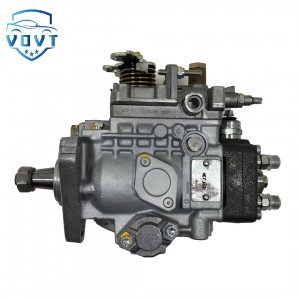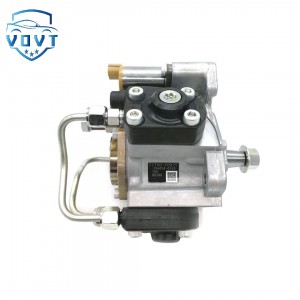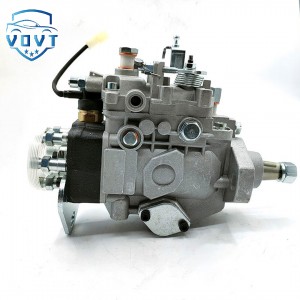Hot Selling Common Rail Diesel Fuel Injection Unit Pump 0 414 750 003 Engine Parts 0414750003
products description
| Reference Code | 0 414 750 003 |
| Application | Deutz |
| MOQ | 1PCS |
| Certification | ISO9001 |
| Place of Origin | China |
| Packaging | Neutral packing |
| Quality Control | 100% tested before shipment |
| Lead time | 7~10 working days |
| Payment | T/T, L/C, Paypal, Western Union, MoneyGram or as your requirement |
Technical Overview and Performance Analysis of Unit Pump Fuel Injection Systems
The Unit Pump (UP) fuel injection system is a widely applied solution in medium- and heavy-duty diesel engines, particularly in construction machinery, agricultural tractors, and commercial vehicles. Characterized by its modular design—where each cylinder is equipped with an independent high-pressure pump—the UP system offers a balanced compromise between performance, durability, and cost. This article provides a technical overview of the operating principles, structural advantages, performance characteristics, and engineering considerations associated with modern Unit Pump systems.
The core of a Unit Pump system consists of a mechanically driven plunger pump, a high-pressure delivery valve, and independent fuel lines routed to each injector. Unlike the traditional inline pump, which distributes pressure from a single pumping element to multiple cylinders, the UP architecture generates high pressure at each cylinder individually. This structure significantly improves pressure stability and injection consistency, as each pump operates without interference from the others.
One of the primary advantages of Unit Pumps is their ability to achieve high injection pressures, typically ranging from 1,200 to 1,600 bar in conventional configurations, and up to 2,000 bar in enhanced designs. Higher injection pressure promotes finer atomization, improved mixing with air, and more complete combustion. For engines operating under harsh or highly transient conditions—such as excavators cycling between heavy digging and rapid slewing—UP systems help maintain stable torque output and fuel economy.
The mechanical robustness of Unit Pumps is another key benefit. The pumps are usually driven by the engine camshaft through a dedicated cam lobe with precisely tuned lift and profile geometry. Components such as plungers, barrels, and springs are engineered with high-hardened steel and low-friction coatings to withstand prolonged high-load operation. As each pump is modular and externally mounted, maintenance and replacement can be performed cylinder-by-cylinder without dismantling the entire injection system, reducing downtime and improving serviceability—a major advantage for construction machinery fleets.
However, traditional mechanical UP systems have limitations in injection flexibility. Because injection timing and quantity are directly linked to cam geometry and mechanical control components, real-time adaptability is restricted. To address this, modern advancements introduce Electronic Unit Pumps (EUP), where a solenoid-controlled spill valve modulates injection timing and duration. EUP systems retain the durability of mechanical Unit Pumps while providing improved precision, reduced emissions, and better compatibility with digital engine ECUs.
In energy-efficiency and emissions-oriented applications, Unit Pumps demonstrate competitive performance but face challenges compared with high-pressure common-rail (HPCR) systems. UP systems typically generate pressure only during the pumping stroke, while HPCR maintains constant rail pressure. As a result, UP-based engines may exhibit slightly higher mechanical losses at high load. Despite this, Unit Pumps remain attractive in cost-sensitive markets and in applications requiring maximum mechanical reliability.
Future development directions for Unit Pump technology include:
-
Adoption of advanced plunger coatings (DLC, CrN) to reduce friction;
-
Integration of intelligent spill-valve control for flexible injection shaping;
-
Hybrid UP–rail concepts to stabilize pressure during transient operations;
-
Improved thermal management to reduce viscosity sensitivity in low-sulfur or bio-diesel fuels.
In summary, Unit Pumps serve as a reliable and high-performing solution for diesel engines in demanding applications. While newer technologies offer higher flexibility, the balance of durability, modular design, and cost-efficiency ensures that UP systems will remain relevant in off-road and heavy-duty machinery for years to come.























